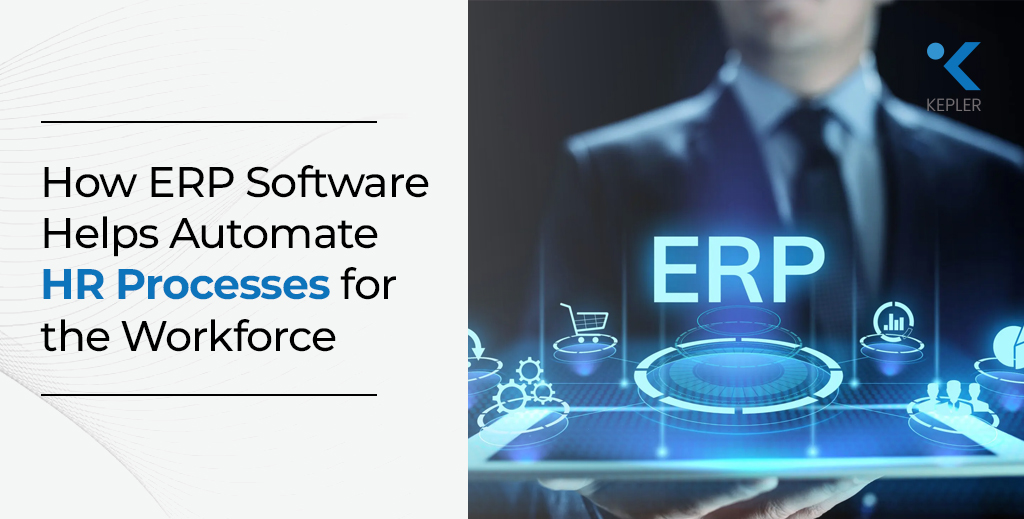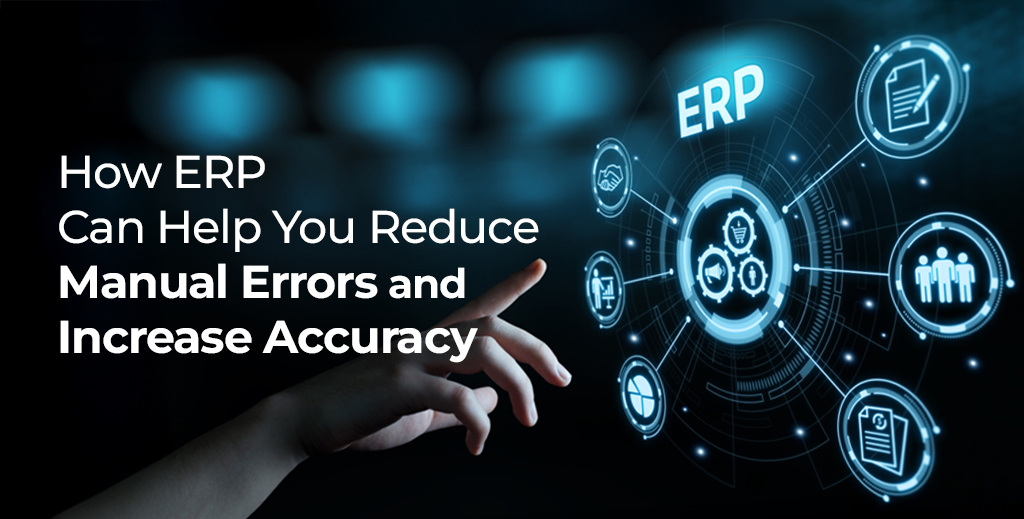
In today’s globalized and digitally connected business environment, organizations across the UAE often consist of multicultural workforces. Employees come from diverse nationalities, languages, traditions, and work ethics. Managing such diversity effectively, especially in human resources, requires a structured approach, transparency, and automation.
This is where ERP Software plays a game changing role.
Enterprise Resource Planning (ERP) systems are not just for finance or inventory anymore. Modern ERP platforms now integrate robust HR management system capabilities, helping HR departments automate processes like recruitment, onboarding, payroll, and performance evaluation.
As the need to embrace multiculturalism grows, automating HR functions ensures consistency, compliance, and clarity regardless of cultural or linguistic differences.
Using ERP to automate HR processes can help organizations manage a multicultural workforce more efficiently, improving communication, reducing errors, and ensuring inclusive employee experiences.
Ready to explore the dynamics of managing a diverse team? Let’s dive into the challenges first.
Challenges of Managing a Multicultural Workforce
Managing employees from different cultural backgrounds is enriching but also challenging. Here’s what makes HR in multicultural environments complex:
- Language barriers: Communication issues can lead to misunderstandings in policies, feedback, or compliance instructions.
- Different work styles and expectations: Some cultures prioritize hierarchy; others value collaboration or independence.
- Varying labor law awareness: Employees from different countries may have differing assumptions about legal rights, leave policies, or contract structures.
- Inconsistent onboarding experiences: Multicultural hires may struggle if processes aren’t standardized.
For example, an HR manager in Dubai might onboard employees from India, Egypt, and the Philippines on the same day, all of whom have different document requirements, visa rules, and communication preferences.
Without streamlined digital processes, these cultural and logistical differences can slow down operations, create confusion, or even lead to compliance issues.
So how do we solve these issues at scale? Let’s look at how ERP automation helps.
Benefits of Using ERP for HR Automation
Automating HR with ERP is not just about saving time; it’s about ensuring inclusivity, accuracy, and transparency in people management.
Here’s how ERP automation transforms multicultural HR:
1. Increased Efficiency
Manual processes take time, especially when dealing with diverse contracts, multiple languages, and varying compliance rules. ERP platforms speed things up with automation and centralized data.
2. Reduced Human Error
Automated systems reduce the risk of errors in payroll calculations, attendance tracking, or documentation common challenges when HR teams manually process diverse employee needs.
3. Better Decision-Making
ERP systems offer real-time dashboards and reports. HR managers can instantly access employee insights such as attrition rates, diversity metrics, or department-specific engagement essential for multicultural team optimization.
4. Improved Communication
Employee self-service portals in multiple languages make it easier for staff to access payslips, apply for leave, or update personal information without confusion.
By digitizing processes, ERP becomes a powerful business solution that adapts to complexity and promotes consistency in multicultural workplaces.
Let’s explore which features you should prioritize in your ERP system.
Key Features of ERP Systems for HR Automation
When selecting an ERP system for HR, especially to support a multicultural workforce, it’s crucial to choose one with features that enhance both automation and accessibility. Here’s a breakdown of must-have functionalities:
- Employee Self-Service Portals
Enable staff to update profiles, apply for leaves, and download payslips. Multilingual interfaces ensure ease of use for employees from diverse linguistic backgrounds.
- Time & Attendance Tracking
Go beyond punch-ins with biometric scanners, GPS tagging for field staff, and automated shift scheduling ideal for businesses with regional or international teams.
- Payroll Management
Automates salary processing, tax filings, and compliance with the UAE’s Wage Protection System (WPS). Supports multiple currencies and contract types, perfect for managing both expat and local employees.
- Performance & Appraisal Modules
Streamlines evaluation cycles by tracking KPIs, collecting 360° feedback, and ensuring fair assessments that respect cultural differences in communication and expectations.
- Document Management System
Stores critical HR files securely (passports, visas, contracts), with automated expiry alerts to maintain compliance and reduce admin workload.
Now that we’ve identified the features, let’s explore how ERP actually automates HR workflows.
Automating HR Processes with ERP
ERP systems empower businesses to automate nearly every essential HR function, enhancing accuracy and saving time. In recruitment, the system can automate job postings across multiple platforms, apply intelligent filters to shortlist candidates, and assign interview tasks with auto-notifications, streamlining the entire hiring process. During onboarding, ERP software allows companies to preconfigure checklists tailored to employee nationalities, facilitate digital submission of essential documents like visas, Emirates IDs, and certifications, and integrate e-signature tools, making remote hiring efficient and compliant.
Attendance and leave tracking are also simplified with ERP solutions. These systems can auto-calculate working hours, leave balances, and holidays based on localized calendars, while integrating with biometric systems or mobile punch-in apps for accurate time tracking. They also generate WPS-compliant payroll files, ensuring smooth and lawful salary disbursements. Additionally, communication and feedback tools within the ERP enable automatic performance review alerts, distribution of surveys and engagement forms, and multilingual support for company policies and notices, fostering an inclusive, transparent HR environment for a multicultural workforce.
But automation is only as good as its implementation. Let’s explore best practices next.
Best Practices for Implementing ERP for HR Automation
Successful ERP implementation requires thoughtful planning, especially in multicultural environments where language, expectations, and legal frameworks vary.
Start by conducting a comprehensive needs analysis. Identify:
- Which HR processes need automation
- The specific compliance requirements for your operating regions
- Language preferences and document handling workflows
Next, choose the right ERP vendor. Look for providers who:
- Have experience in the UAE or other diverse regions
- Offer Arabic and English interface options
- Provide localized support and system customization
Training is a cornerstone of adoption. Ensure your team receives:
- Role-based, multilingual training sessions
- Interactive onboarding materials for employees
- Continuous support post-implementation
These practices ensure your ERP becomes a long-term business software asset, not just a one-time deployment.
Future of HR Automation with ERP
The future of HR automation is being shaped by emerging technologies like AI, machine learning, and mobile-first ERP platforms, all of which are transforming how HR departments function in global, multicultural organizations. One of the most promising advancements is the integration of artificial intelligence and machine learning into ERP platforms. These technologies enable predictive analytics, allowing businesses to forecast employee turnover, identify skill gaps, and recommend training paths. AI-driven chatbots can also handle basic HR queries in multiple languages, providing instant support to employees across regions.Cloud-based ERP systems are gaining momentum due to their scalability and remote accessibility.
In diverse workplaces where employees may work from different offices or countries, cloud ERP ensures that everyone can access the same system in real time. This accessibility breaks down geographic and departmental silos, supporting collaboration and consistent HR processes across borders. Additionally, the rise of mobile ERP apps is changing the way HR is delivered. Employees can now manage tasks like leave applications, attendance logging, or document uploads directly from their smartphones, ideal for field workers, remote teams, or on-the-go professionals. Mobile-first design also allows HR managers to approve requests, run reports, or communicate updates instantly. As ERP systems evolve, they will continue to offer more intuitive, intelligent, and inclusive features, aligning with the growing need for responsive and culturally aware business software in today’s globalized work environments.
FAQs
Q1. Can ERP handle HR needs for a multilingual workforce?
Yes. Many ERP systems provide multilingual employee portals and document templates, ideal for teams with diverse language backgrounds.
Q2. Is ERP implementation costly for HR departments?
Initial costs vary, but long-term savings in time, error reduction, and compliance make it highly cost-effective. Open-source options like ERPNext reduce licensing fees.
Q3. Which HR functions are best suited for automation?
Recruitment, onboarding, payroll, attendance, document tracking, and performance reviews can all be automated using ERP.
Q4. What’s the ROI of HR automation with ERP?
Businesses typically see better compliance, reduced processing time, and increased employee satisfaction, especially in multicultural environments.
Q5. Do ERP platforms support UAE labor law compliance?
Yes. Many ERP systems are designed to comply with UAE WPS, gratuity calculations, leave policies, and more.
Conclusion
Managing HR processes manually is no longer practical in today’s fast-paced, multicultural business environment. Adopting an ERP Software solution streamlines operations, ensures compliance, and fosters a more transparent and consistent approach to workforce management. From employee self-service portals and multilingual interfaces to WPS-compliant payroll systems, modern ERP platforms are now indispensable business solutions for organizations in the UAE and beyond.
To make the most of these tools, it’s crucial to assess your organization’s unique needs, invest in the right technology, and provide adequate training for your team. With a clear strategy and a reliable ERP system in place, your HR department can evolve into a powerhouse of efficiency and inclusivity. For businesses in Dubai looking to implement a robust ERP solution, Kepler Tech, one of the best business software providers in Dubai, offers expert guidance and advanced tools tailored to your HR and payroll management needs.
Now’s the time to future-proof your HR department. Start with the right ERP strategy today.


